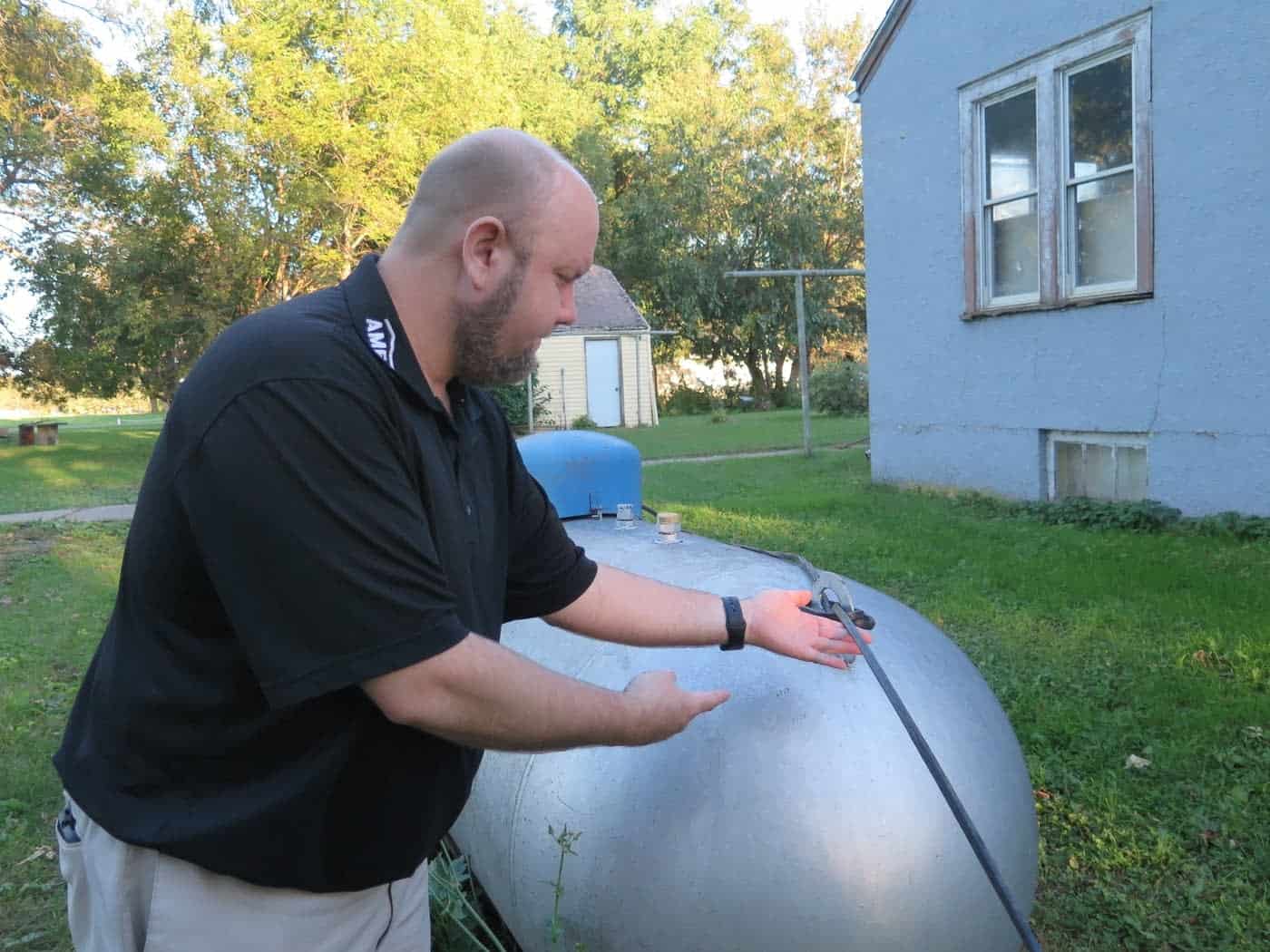
Ceylon City Council Member John Gibeau shows this Frontier Communications cable intentionally laid across the customer’s propane tank. (Image courtesy: Mark Steil, MPR News)
Frontier Communications technicians decided it would be perfectly safe to drape their telephone lines on top of a propane tank, use overhead tree branches as makeshift telephone poles, and leave phone cables laying on the ground — in lawns, fields, and farms — for up to three years in southern Minnesota.
Minnesota Public Radio found a number of problems with Frontier Communications in a special report outlining years of complaints about the phone company’s performance — or lack thereof — in small communities around the state, including in the town of Ceylon in Martin County, located along the Minnesota-Iowa border.
John Gibeau, a city council member, might tell visitors to be careful of Frontier’s phone cables, some that have laid on the ground in parts of town for years.
“There’s three lines there, that are just laying across the ground,” Gibeau told MPR News. “And they run down for probably another 60 yards.”
Frontier laid out the phone cables sometime ago, but they have never seen a day attached to a utility pole.
In another part of town, a Frontier line technician thought nothing about draping a phone line across the top of a homeowner’s propane tank. At one address, there was no convenient utility pole in sight, so the technician used a few trees in the neighborhood as makeshift poles, distributing the line through the tree branches which help keep the cable above ground so vehicles do not drive over it. Gibeau said Frontier has left it that way for almost three years.
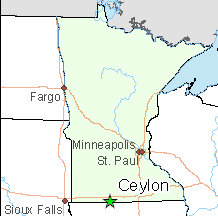
Ceylon, Minn.
Another resident deals with Frontier’s phone line each time he mows his lawn. That is because Frontier just dropped the cable on the grass and left it there. He relocated it to a nearby flower bed to avoid an accidental entanglement with the lawnmower. Other neighbors have done their part, attaching Frontier’s lines to the top of fences and fence poles — anything in sight that can get the cable off the ground where it can be ruined over time.
In all these cases, Frontier has refused to fix the problems, despite repeated calls. But that may be asking for too much. At a hearing recently in Slayton, Frontier customer Dale Burkhardt lost his phone and DSL service after a construction crew accidentally severed the phone cable that serves his farm. More than a year later, Frontier’s repair crews have never shown up to repair the line, regardless of the number of trouble tickets and calls to customer service.
“I still don’t have a landline, I don’t have an internet,” Burkhardt said. “I’m getting a little fed up.”
As Minnesota’s Public Utilities Commission continues a series of public hearings around the state to hear complaints concerning Frontier Communications, regulators are getting an earful. Nearly 400 people have turned out for the hearings so far. Many report Frontier has not fixed their problems, no matter how often customers complain.
Javier Mendoza, Frontier’s vice president of communications, told MPR the company is listening to customers.
“For us, one customer who is out of service is one customer too many,” Mendoza said. “So, we would thank our customers for their patience. We recognize that from time to time we experience service issues and delays. And for those customers that are affected, we apologize to them.”
Frontier Communications scatters its phone cables on residents’ lawns, across a propane tank, and through tree branches as makeshift utility poles, reports Minnesota Public Radio (3:56)


 Subscribe
Subscribe Connecticut’s telecommunications regulator has effectively banned public broadband in the state, ruling that municipalities cannot use their reserved space on utility poles if it means competing with the state’s dominant telecom companies — Comcast, Altice, and Frontier Communications.
Connecticut’s telecommunications regulator has effectively banned public broadband in the state, ruling that municipalities cannot use their reserved space on utility poles if it means competing with the state’s dominant telecom companies — Comcast, Altice, and Frontier Communications. The law stood as written until 2013, when the legislature clarified exactly who could benefit from the use of “municipal gain.” Where the original law effectively protected reserved pole space for “municipal” use, the language was broadened in 2013 to read “for any purpose.”
The law stood as written until 2013, when the legislature clarified exactly who could benefit from the use of “municipal gain.” Where the original law effectively protected reserved pole space for “municipal” use, the language was broadened in 2013 to read “for any purpose.”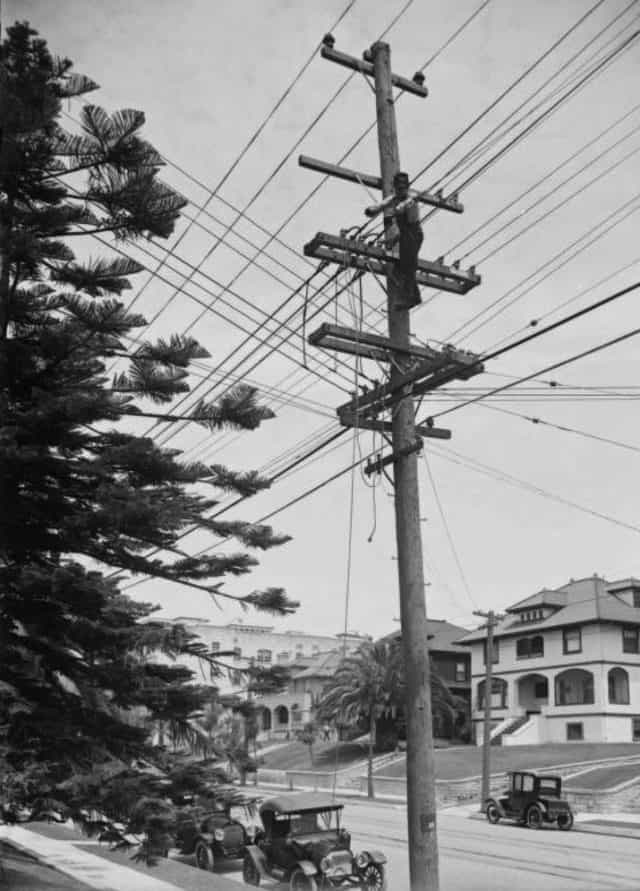
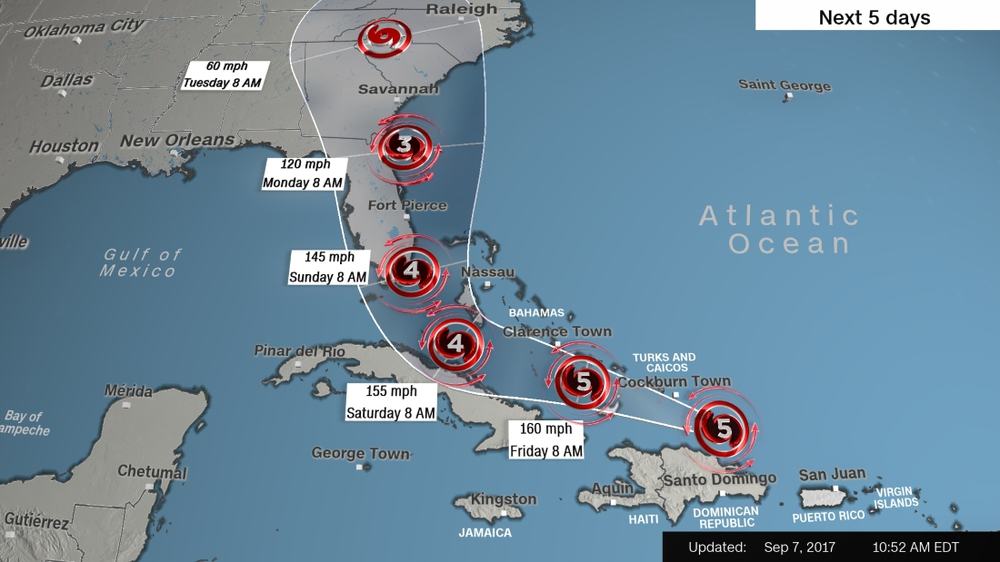
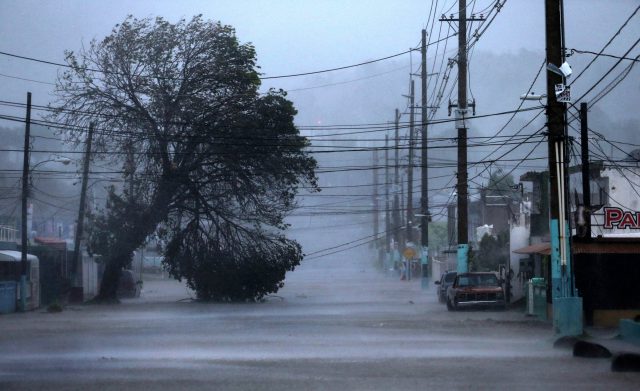
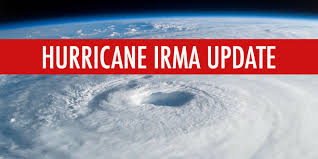
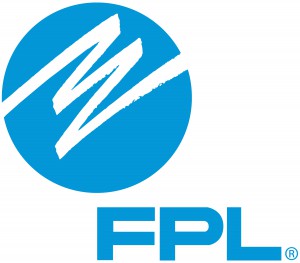 A Florida utility company has told federal regulators it is certain Verizon has a plan to exit its landline and wired broadband businesses within the next ten years to become an all-wireless service provider.
A Florida utility company has told federal regulators it is certain Verizon has a plan to exit its landline and wired broadband businesses within the next ten years to become an all-wireless service provider. “Verizon has not increased its efforts to deploy wireline broadband in the last three years; and there is no evidence that Verizon has used the capital saved on joint use rates for the expansion of wireline broadband,” FP&L officials write. “Indeed, all of the evidence shows that Verizon is abandoning its efforts to build out wireline broadband.”
“Verizon has not increased its efforts to deploy wireline broadband in the last three years; and there is no evidence that Verizon has used the capital saved on joint use rates for the expansion of wireline broadband,” FP&L officials write. “Indeed, all of the evidence shows that Verizon is abandoning its efforts to build out wireline broadband.”
 Connecticut’s Attorney General has announced a deal with Frontier Communications to approve its acquisition of AT&T’s wired assets in the state. The office asked for and got a three-year rate freeze on basic residential telephone rates and a commitment to keep selling standalone broadband at or below Frontier’s current rates. Low-income military veterans would receive basic broadband service for $19.99 per month, a substantial discount off the regular price of $34.99. The first month of service is free.
Connecticut’s Attorney General has announced a deal with Frontier Communications to approve its acquisition of AT&T’s wired assets in the state. The office asked for and got a three-year rate freeze on basic residential telephone rates and a commitment to keep selling standalone broadband at or below Frontier’s current rates. Low-income military veterans would receive basic broadband service for $19.99 per month, a substantial discount off the regular price of $34.99. The first month of service is free.